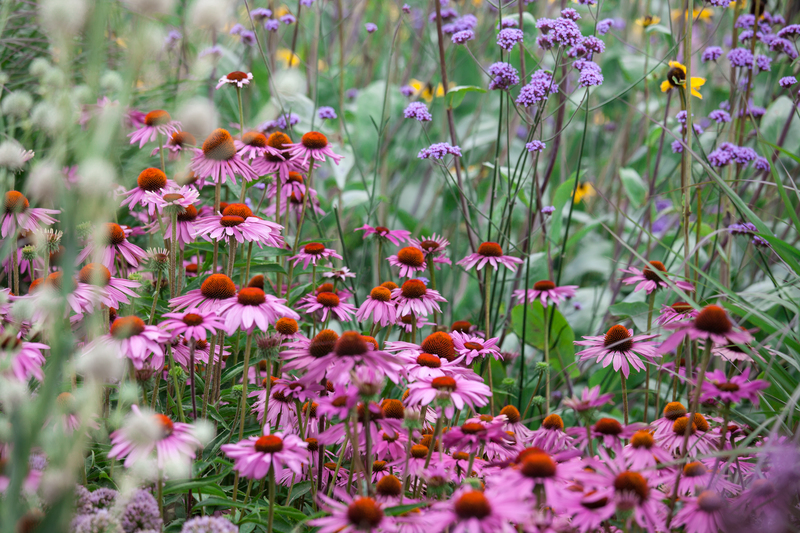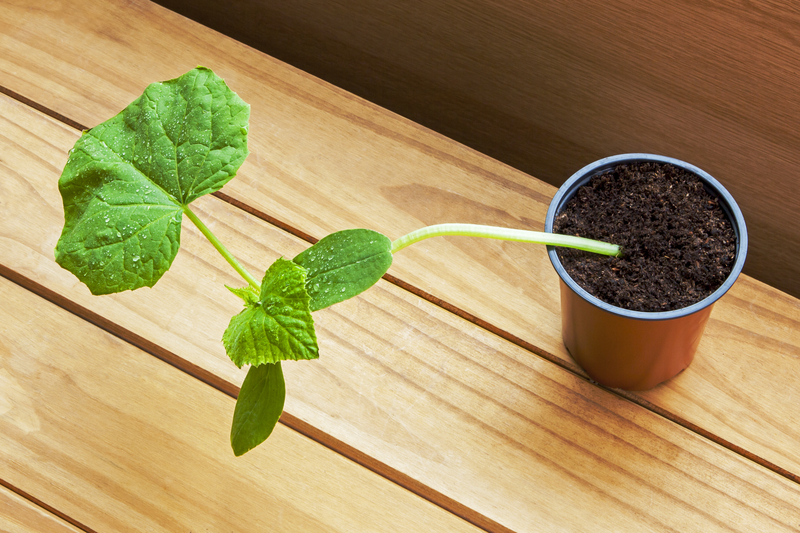Complete Your Small Garden Look with These 10 Stunning Evergreen Trees
Transforming your compact outdoor space into a year-round haven of greenery and structure is easier than ever with the right selection of evergreen trees for small gardens. These versatile trees not only provide color and texture, but also privacy and architectural interest, making them the perfect backbone of any small landscape. Whether you want a contemporary style, cottage charm, or Mediterranean vibes, evergreens ensure your small garden always looks inviting--even in the depths of winter.
Why Choose Evergreen Trees for Small Gardens?
Evergreen trees hold their beautiful foliage throughout the seasons, providing invaluable continuity to your garden design. Unlike deciduous trees that lose their leaves in autumn, evergreens create interest and visual structure year-round. Choosing the right kinds of compact evergreen trees means you can enjoy privacy, shade, and delightful details without worrying about overshadowing your limited space.
- Low Maintenance: Most evergreens tolerate trimming and don't require frequent clean-up.
- All-Season Appeal: Their lush foliage adds color and life in every month.
- Space Efficiency: Many varieties are slow-growing or naturally dwarf, making them perfect for tight spots.
- Wildlife Friendly: Evergreens provide essential shelter and food for garden wildlife.

The Best 10 Evergreen Trees For Small Gardens
Discover below the 10 best evergreen trees for compact gardens, carefully selected for their form, hardiness, and year-round appeal.
1. Japanese Holly (Ilex crenata)
The Japanese holly is an excellent evergreen shrub or small tree perfect for neat hedges or topiary. Its petite, glossy leaves resemble those of boxwood but are more resistant to disease and deer. Ideal for shaping, Japanese holly keeps a tidy appearance year-round. Cultivars like 'Sky Pencil' have a narrow, columnar habit perfect for pots or as a dramatic accent in tight spaces.
- Height: 4-10 ft
- Spread: 3-4 ft
- Light: Sun to partial shade
- Soil: Moist, well-drained
2. Dwarf Alberta Spruce (Picea glauca 'Conica')
With its compact, naturally conical shape and dense, bright-green needles, the Dwarf Alberta spruce is a classic accent for cozy corners, pathways, or containers. This slow-growing small evergreen tree needs almost no pruning!
- Height: 8-10 ft
- Spread: 4-5 ft
- Light: Full sun to partial shade
- Soil: Moist, well-drained
3. Bay Laurel (Laurus nobilis)
Ever dreamed of growing your own culinary ingredients? The handsome bay laurel boasts glossy, aromatic leaves--essential for home cooks--and elegant form. Thanks to its upright and slow-growing habit, it's perfect for small patios or formal gardens. Keep it pruned for a classy standard tree, or let it fill out as a lovely bush.
- Height: 6-12 ft (pruned smaller in pots)
- Spread: 6-8 ft
- Light: Full sun to partial shade
- Soil: Well-drained, not overly wet
4. Olive Tree (Olea europaea)
For a touch of the Mediterranean--even in temperate climates--the olive tree is a superb evergreen choice. Its silvery-green leaves and rugged trunk add light and texture, especially when grown against a wall or as a specimen in a large pot. Hardy types and dwarf cultivars are increasingly available, making olives one of the best compact evergreen trees for stylish small gardens.
- Height: 6-12 ft (with pruning)
- Spread: 3-6 ft
- Light: Full sun
- Soil: Well-drained, avoid waterlogging
5. Portuguese Laurel (Prunus lusitanica)
If you need an elegant, fast-growing screen or a clipped, architectural specimen, Portuguese laurel delivers. Dark green, glossy leaves and fragrant white blossoms in early summer make this tree both beautiful and practical for year-round privacy. It tolerates regular clipping, forming dense hedges or slender trees in small borders.
- Height: Up to 13 ft (easily kept smaller)
- Spread: 8 ft (pruned to shape)
- Light: Full sun to shade
- Soil: Most soils except waterlogged
6. Yew (Taxus baccata)
The quintessential evergreen for classic gardens, yew trees adapt brilliantly to small spaces. Their rich, dark needles, tolerance of pruning, and slow growth make them ideal for formal hedges or compact standards--excellent for framing paths or marking entrances. Incredibly long-lived, yews add structure and gravitas to any garden size.
- Height: 8-10 ft (kept smaller with regular pruning)
- Spread: 5-8 ft
- Light: Sun or shade
- Soil: Moist but well-drained
7. Holly (Ilex aquifolium)
A staple in British and temperate gardens, holly trees boast glossy, often spiny leaves and red winter berries (on female plants). For small gardens, choose slow-growing or dwarf cultivars, which retain all the classic beauty without growing too large. Hollies are wonderful as statement trees, hedges, or even containers near your front door.
- Height: 6-25 ft (dwarfs available around 6-8 ft)
- Spread: 4-10 ft
- Light: Full sun to shade
- Soil: Moist, well-drained, tolerant of poor soil
8. Camellia (Camellia japonica)
If you want a statement plant with winter interest, Camellia japonica is hard to beat. In spring, its waxy evergreen leaves are complemented by spectacular flowers in pinks, reds, and whites. Camellias look stunning in pots or as a small garden feature and perform best in partly shaded spots with rich, acidic soil.
- Height: 6-10 ft
- Spread: 4-8 ft
- Light: Partial shade, out of strong afternoon sun
- Soil: Acidic, well-drained
9. Strawberry Tree (Arbutus unedo)
Native to the Mediterranean and Irish coasts, the strawberry tree is a striking evergreen with peeling bark, deep green leaves, and unusual red fruits following clusters of white bell-shaped flowers. It's compact and tolerant of most conditions, adding year-round beauty and a touch of the exotic.
- Height: 10-15 ft (can be pruned smaller)
- Spread: 8-10 ft
- Light: Full sun to partial shade
- Soil: Drained but not too dry
10. Kousa Dogwood (Cornus kousa 'Evergreen' series)
This hybrid cultivar offers something few dogwoods can: gorgeous evergreen leaves that persist through mild winters, coupled with star-shaped spring blossoms and distinctive autumn berries. The Kousa dogwood 'Evergreen' is a beautiful choice for a specimen tree in sheltered, compact gardens. Its manageable size, year-round presence, and layered branches make it invaluable where space is at a premium.
- Height: 10-16 ft (dwarf varieties smaller)
- Spread: 8-12 ft
- Light: Sun or partial shade
- Soil: Well-drained, slightly acidic
How to Select the Right Evergreen Tree for Your Space
When choosing the ideal evergreen tree for a small garden, always begin with the fundamentals:
- Check Mature Size: Look for dwarf, compact, or slow-growing varieties that fit your available space.
- Consider Growth Habit: Some evergreens are upright and columnar; others are rounded or spreading.
- Assess Light and Soil: Know whether your garden is sunny, shady, or windy, and select trees suited to those conditions.
- Purpose: Are you aiming for privacy, a feature plant, edible leaves, or simply year-round color?
Tips for Planting Evergreen Trees in Small Gardens
- Plant at the Right Time: Early spring or autumn helps evergreens settle before harsh weather.
- Prepare the Soil: Enhance drainage and add organic matter for healthy roots.
- Mind the Roots: Avoid planting too deep; the top of the rootball should sit at soil level.
- Water Well: Newly planted evergreens need regular watering until established, especially if grown in containers.
- Mulch: Use bark or compost to retain moisture and suppress weeds.
Evergreen Tree Care in Small Gardens
Once you've chosen your evergreen varieties, keeping them at their best is crucial to maintain a beautiful, lush garden all year round.
- Prune judiciously: Most evergreens respond well to light shaping. Prune in early spring before new growth appears.
- Feed annuall: Use a slow-release fertilizer suitable for evergreens to encourage vibrant green foliage.
- Monitor for pests: Inspect regularly; evergreens are generally resilient but can attract scale or mites, especially in containers.
Landscape Ideas: Styling Small Gardens with Evergreens
There's no limit to the ways you can integrate stunning evergreen trees into compact gardens:
- Framing Entrances: Tall, slender evergreens like 'Sky Pencil' holly are perfect for flanking paths or doorways.
- Potted Accents: Use dwarf spruce or bay laurel standards in decorative containers for patios and balconies.
- Low Hedges: Boxwood, holly, or yew clipped into tidy hedges bring shape to flower beds without overwhelming the space.
- Layering: Combine different forms and foliage for texture--upright olive trees, rounded camellias, and columnar laurels work beautifully together.
- Winter Structure: Place evergreens in key sightlines around the garden for interest when deciduous plants are bare.
Common Evergreen Mistakes to Avoid
- Overcrowding: Resist the urge to squeeze in too many species--leave enough space for each tree's mature size.
- Poor Placement: Don't plant dense, tall evergreens where they block sunlight from lower plants or your living areas.
- Neglecting Water Needs: Newly positioned evergreens still require deep watering during dry spells, especially if containerized.

FAQs About Evergreens for Small Gardens
Which evergreens are best for privacy in a small garden?
Tight, vertical species like Portuguese laurel, 'Sky Pencil' holly, and upright yew cultivars are exceptional for privacy screens or hedging in compact spaces.
Can evergreen trees grow in containers?
Absolutely! Dwarf varieties of coniferous trees like Dwarf Alberta spruce, bay laurel, and 'Little Gem' magnolia do extremely well in planters. Just ensure regular feeding and watering.
Are any evergreens suitable for shady small gardens?
Yes, yew and holly tolerate deep shade, while camellia and certain laurel varieties thrive in partial shade.
Complete Your Garden with the Perfect Evergreen Trees
With a little planning and thoughtful plant choices, even the smallest garden can be transformed into a gorgeous, low-maintenance escape with lush foliage twelve months of the year. Whether you want privacy, architectural interest, or simply an inviting green space, these stunning evergreen trees for small gardens help you achieve a garden you'll love for years.
Remember to select species proportionate to your space, give them a good start, and prune occasionally to maintain their best shape. By combining different textures, shapes, and shades of green, you'll create a uniquely personal haven--one that looks vibrant, alive, and welcoming in every season.